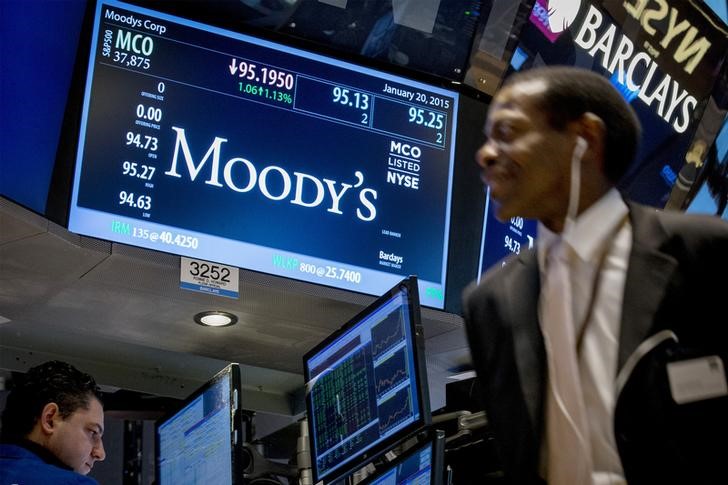By Jason Lange
WASHINGTON (Reuters) - The U.S. stock market rout triggered by a deadly coronavirus outbreak suggests President Donald Trump is in grave danger of losing the November election, according to a forecasting model by Moody's Analytics, a leading Wall Street research firm.
That's a big change from what the model showed using data from February, when higher stock prices and Trump's steady approval rating pointed to the Republican president coasting to victory with 351 votes in the U.S. Electoral College to 187 votes for a Democratic challenger.
But financial markets have since plunged with the spread of the virus disrupting economic activity around the world and sparking fears of a global recession. A drop in the Standard & Poor's 500 stock index to 2,500 points - roughly Thursday's closing level - would signal enough economic anxiety to cost Trump the election, Bernard Yaros, an economist at Moody's Analytics, said on Friday.
"The S&P 500 would need to be 2,500 or less for Trump to lose," Yaros told Reuters in an email. He did not elaborate on the expected electoral college results in that circumstance.
U.S. companies are already reporting layoffs due to the health crisis but most economic data that will reflect that - and which experts use to make forecasts - won't be available for weeks.
That has Moody's Analytics, a leading forecasting firm, relying more on financial market movements which respond quickly to signs of economic trouble.
After plunging into bear market territory on Thursday, the S&P 500 recovered a small slice of its losses on Friday, finishing higher at 2,711 points after Trump declared a national emergency over the coronavirus. The U.S. Federal Reserve, seeking to prop up the economy amid the crisis, slashed interest rates to near zero on Sunday in an emergency move.
The coronavirus causes the COVID-19 respiratory disease and has killed at least 60 Americans and more than 6,000 worldwide.
Researchers have long found presidential incumbents do better at the polls during a strong economy but because voters also weigh other matters, many forecasters factor presidential approval ratings into their prediction models.
Yaros said his model's latest predictions, including the scenario he outlined to Reuters on Friday, use Trump's most recent Gallup approval rating of 47% in late February. That was a near-record high for his presidency after rising during impeachment proceedings in the Democratic-controlled House of Representatives. The Republican-controlled Senate acquitted him on Feb. 5 after a weeks-long trial.
In a report to clients on Thursday, Yaros said a decline in Trump's approval rating to 37% and the S&P 500 at 2,700 points would point to a Democratic candidate narrowly winning the Electoral College with 279 votes to Trump's 259.
U.S. voters pick their president through an indirect vote, selecting electors at a state level. To win the presidency, a candidate must win at least 270 votes from the 538 electors in the Electoral College.
Gallup is expected to release an updated approval rating for Trump this week. The president has come under fire for his response to the crisis and for initially downplaying the severity of the outbreak.
Voter opinions about the coronavirus response so far remained divided along party lines, according to a Reuters/Ipsos poll from March 2-3, with Democrats more likely than Republicans to see the outbreak as an imminent threat to the United States and to say there were taking steps to be prepared.
While forecasters at U.S. universities and on Wall Street use sophisticated statistical models to predict election results, they do not have a pristine track record.
Many forecasting groups, including Moody's Analytics, failed to predict Trump's victory in 2016.
Moody's Analytics said its failure in 2016 appeared due to higher-than-normal voter turnout in the U.S. Midwest.
The coronavirus, which is currently making many Americans afraid to leave their homes, is another wild card for turnout in November.
